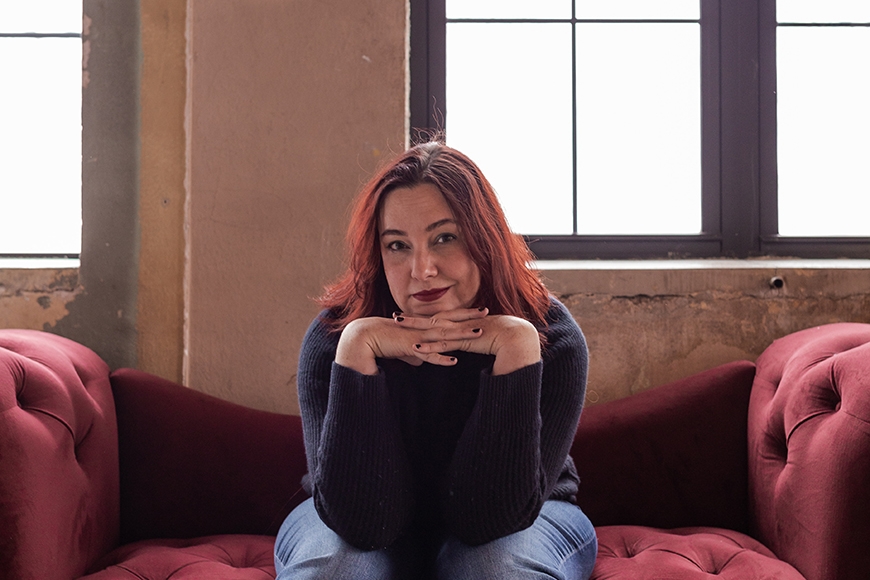The Non-Ac Career: Establishing a Freelance Writing and Editing Career
A writer of fantasy, science fiction, and horror, Kat Howard (PhD 2009) didn’t think seriously about writing professionally until a year before she graduated. “It is still kind of amazing to me that I get to make part of my living telling stories,” she says. Howard is the author of An Unkindness of Magicians, which won a 2018 Alex Award, and its sequel A Sleight of Shadows (2023). A 2019 short fiction collection, A Cathedral of Myth and Bone, includes work that has been nominated for the World Fantasy Award and anthologized in "best of" volumes; her debut novel Roses and Rot was a finalist for the Locus Award for Best First Novel. Howard was the writer for the first 18 issues of The Books of Magic, part of DC Comics' Sandman Universe. She graciously answered our emailed questions.
Would you describe your career path?
I’ve always loved reading, and thinking about books and writing. My time as a grad student in the English department was very much the result of that; I loved being a graduate student and having the time to think deeply about words and language, and I’ve definitely taken that with me into all aspects of my current career.
Freelancing full time was a bit of a shift for me. I hadn’t intended to write fiction at all—I thought my home was in academia. Then, even when I realized that I could write professionally, I had thought that my day job (most writers have one) would be in academia. The shifting of professional academia meant things didn’t play out according to my plans, and I jumped into full time freelancing much earlier than I expected to. When I’m not writing, I’m a freelance developmental editor—I work with other writers on a one-to-one basis to strengthen and polish their work. I still use the skills that I acquired in graduate school—the ability to research, to revise, to write to deadline, to analyze various components of fiction—every day.
What has surprised you most about your current role?
In a way, the fact that it happened. I wasn’t someone who knew from an early age that they were going to be a writer. I never took any creative writing classes while in school. I thought academia was going to be my home—I was a year away from defending my dissertation before I attended the writing workshop that made me think that writing professionally was a possibility for me at all.
What do you wish you had known as a graduate student?
I wish I had known, or known more deeply, that there’s value in learning what you don’t like as well as what you do. I used to have a mindset that trying something and realizing it wasn’t for me meant that I had wasted time or money. Whereas now I think, “Okay, it’s good to know that even though I thought I might like this thing, I actually don’t. Now I can put my energy toward something else that I might like better.” Figuring this out has actually made me more likely to try new things.
What advice would you give current students embarking on their postdoctoral careers?
I don’t think it’s any secret that the job market in the humanities is difficult right now, and has been tricky for a while. So the first thing I would say is to have some compassion for yourself as you go through the process—offer yourself grace.
Perhaps more practically, I’d say have a backup plan or three, and also know that it’s okay to throw those out or change them if they’re not working. Realize that you have more skills than you think you do—you’ve learned valuable and useful ways of thinking and seeing the world. And that it’s okay to go for the thing that seems a little unusual or maybe just out of reach, because you never know.



